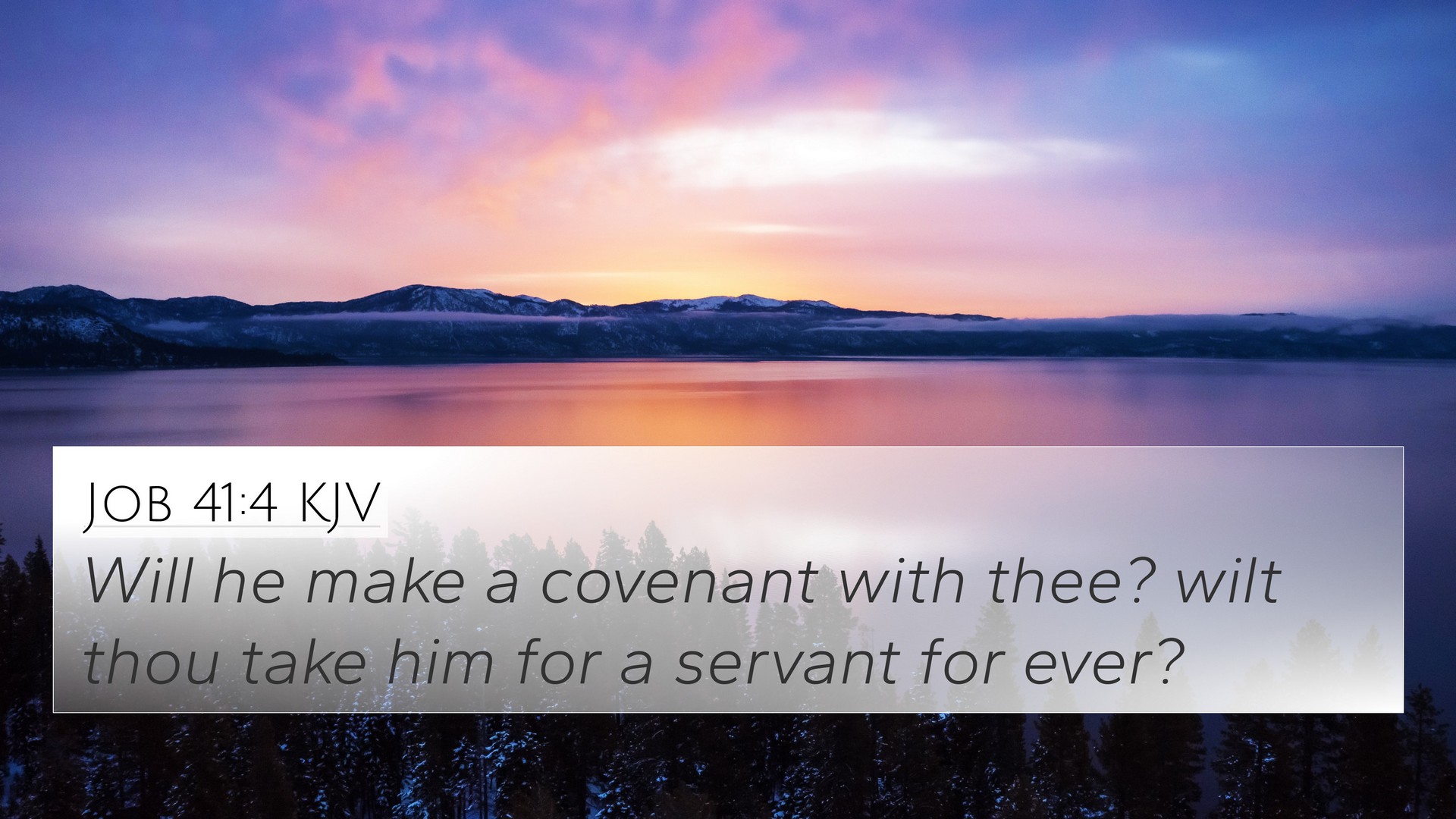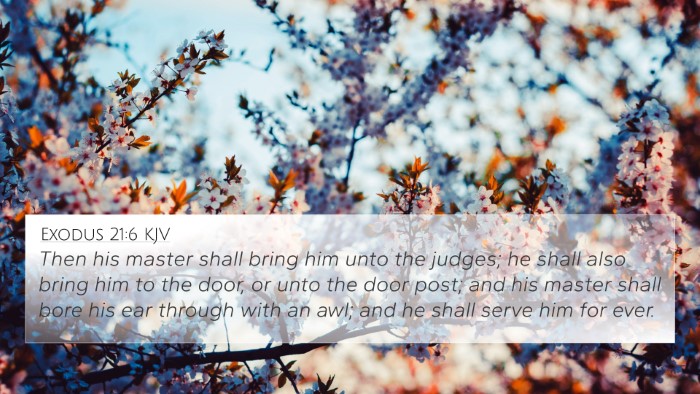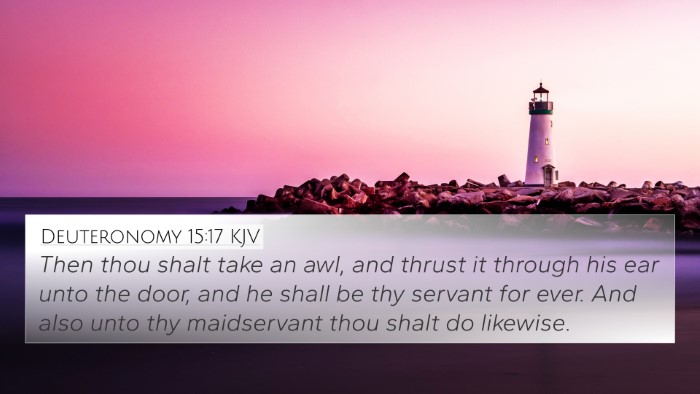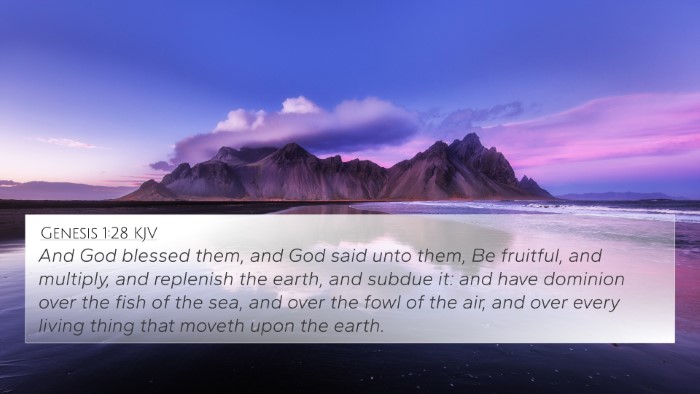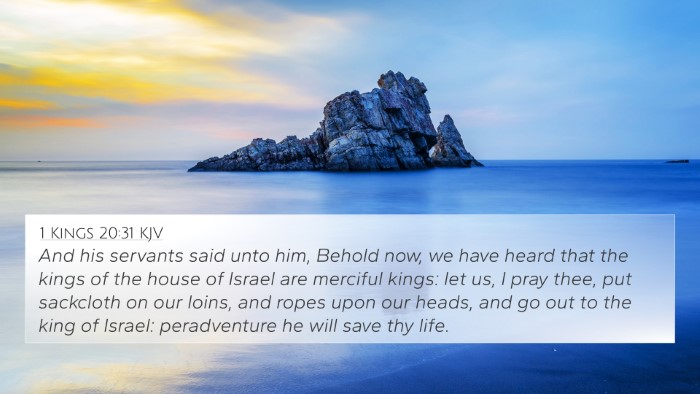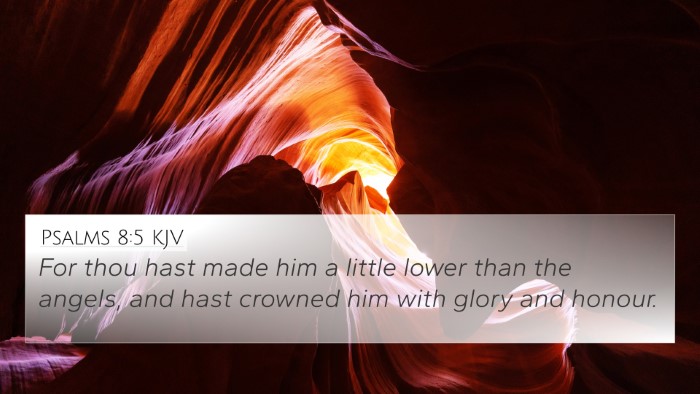Understanding Job 41:4
Job 41:4 states: "Will he make many supplications unto thee? Will he speak soft words unto thee?" This verse is part of God's speech to Job, emphasizing the power and untamability of the whirlwind creature described previously in the chapter, often interpreted as a reference to the Leviathan.
Summary of Insights from Commentaries
This verse is illuminating in the context of God’s mighty creations, particularly the powerful and fearsome Leviathan, which represents the chaos and uncontrollable forces of nature. The question posed highlights the unyielding nature of this creature, indicating that it is not subdued by soft words or pleas, showcasing the grandeur and sovereignty of God’s creations.
Matthew Henry's Commentary
Matthew Henry remarks on the nature of the Leviathan as a creature that does not respond to human persuasion. In this way, it serves as a metaphor for the majesty of God and His power over all things. Henry emphasizes that God's question to Job illustrates human limitations and the futility of attempting to control what is inherently uncontrollable. The Leviathan's ferocity is a reflection of God’s divine strength.
Albert Barnes' Commentary
Albert Barnes elaborates on the rhetorical questions posed in this verse, implying that the Leviathan, as a creature of immense power, is beyond human negotiation or influence. Barnes notes that the text serves to remind Job and the readers of God’s ultimate authority. It invites believers to reflect on their own humble position in relation to God's might. The focus here is to induce an understanding of our relationship with the Creator.
Adam Clarke's Commentary
Adam Clarke emphasizes that the rhetorical nature of the question reveals a deep theological truth about God’s unreachable majesty. Clarke suggests that the verse speaks not just of a literal creature, but of the spiritual forces at play in the world that man cannot control or influence through mere words. Clarke's insights point toward recognizing the distinction between divine and human power.
Cross-References for Job 41:4
- Psalm 104:25-26: A description of great sea creatures emphasizing God's creation.
- Isaiah 27:1: Reference to Leviathan being a symbol of chaos and God’s power over it.
- Job 38:31-33: God questioning Job about the mysteries of creation.
- Psalm 74:14: Mentioning God’s defeat of Leviathan.
- Revelation 13:1: The beast rising from the sea, symbolizing chaos and opposition to God.
- Jeremiah 51:34: A mention of Babylon as a comparable metaphor to Leviathan.
- Job 40:15-24: Further description of God's creatures and their grandeur.
- Psalm 89:10: God's dominion over the sea and chaos.
- Exodus 15:8: The imagery of water and chaos in God’s deliverance.
- Genesis 1:21: God creating the great sea creatures, highlighting His creative authority.
Thematic Connections
The verse invokes a robust dialogue regarding the themes of divine sovereignty, human limitation, and the power of God over chaotic forces. It calls for comparative Bible verse analysis to draw connections with similar themes found throughout scripture. Understanding how God interacts with creation across different texts provides a profound insight into His majesty.
Conclusion
In conclusion, Job 41:4 serves as a powerful reminder of God’s authority and the nature of His creations, encouraging believers to reflect on their own position in relation to Him. Through tools for Bible cross-referencing, such as concordances and cross-reference guides, one can explore this theme more deeply throughout scripture. Engaging with these cross-referenced themes enriches one's understanding of scripture and promotes a fuller appreciation of inter-Biblical dialogue.
